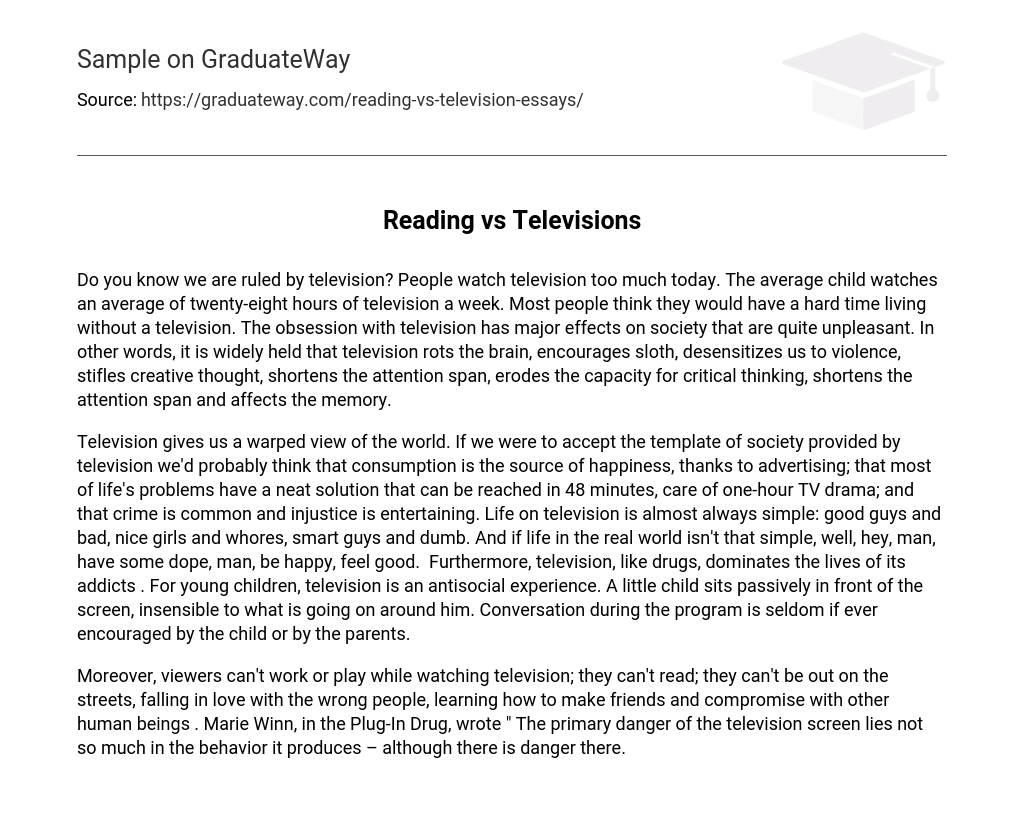In contemporary society, television wields considerable influence over individuals, especially regarding the duration of time devoted to watching it. Among young ones, the mean weekly TV consumption amounts to twenty-eight hours. It is widely believed that excessive television viewing has adverse effects on our cognitive faculties, promoting indolence, desensitization towards violence, and hampering creative and critical thinking skills. Furthermore, it is presumed to diminish attention span and memory capacity. Consequently, society widely acknowledges the harmful consequences stemming from this preoccupation with television.
Television distorts our view of the world, promoting a skewed societal model that suggests happiness comes from consumption through advertisements. It also portrays life’s challenges as easily solvable within one-hour TV dramas, creating unrealistic expectations. Additionally, television presents crime as prevalent and injustices as intriguing while simplifying character portrayals into binary opposites like good or bad, nice or promiscuous, intelligent or unintelligent.
This oversimplification can lead individuals to seek escape and happiness through drugs if reality proves more complex than what is depicted on screen. The influence of television in viewers’ lives is comparable to that of drugs; it behaves as a dominant force. For young children, it fosters antisocial behaviors by encouraging passive engagement with the screen and discouraging conversations with both the child and their parents during programming.
Furthermore, the act of watching television prevents people from engaging in other activities such as work, play, reading, socializing, and developing important interpersonal skills like making friends and compromising. According to Marie Winn’s book “The Plug-In Drug,” the television screen’s main threat does not solely stem from the behaviors it generates, but there is indeed some danger present.





